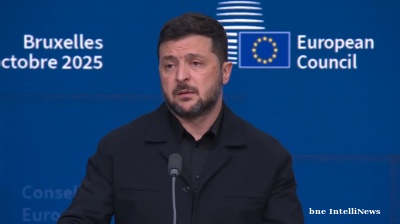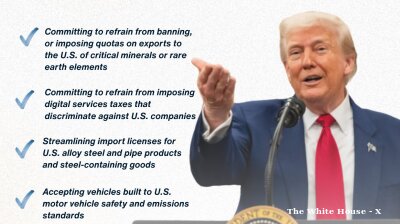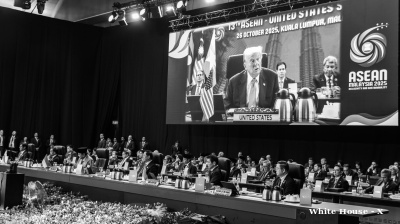The Rada, Ukraine's parliament, has passed a second version of the e-declaration law to return the anti-corruption law that requires all public servants to declare their income and assets after Ukrainian President Volodymyr Zelenskiy vetoed a previous version.
A key part of Ukraine’s anti-corruption infrastructure, the e-declaration law forces all public servants and their close relatives to list their income and assets like cars and houses. Crucially, the information is made public, especially to Ukraine’s press and vibrant civil society organisations who look for signs of corruption.
However, the law was suspended last year following the introduction of martial law when Russia invaded in February 2022. Rada deputies submitted a law on September 14 to re-introduced the declaration requirement, however, amendments stated that the release of the information to the public should be suspended.
Following the Recovery conference held in London in June Ukraine’s strategy to raise the tens of billions of dollars needed to rebuild the country following the eventual end of the war with Russia is to target the private sector and invite private investors into the country. However, it is immediately obvious that no investors will come while Ukraine remains riven with endemic corruption and Zelenskiy has launched a large-scale and comprehensive anti-corruption campaign.
So far the most high profile events in this campaign has been the introduction of an anti-oligarch law in September 2021 and more recently the arrest of oligarch Ihor Kolomoisky on September 2. The reintroduction of the e-declaration law (bill No. 9534), including its public disclosure requirements, is another step in the same campaign that targets more general corruption in the government as a whole, although the new bill still contains some exemptions for specific military personnel. Zelenskiy has also proposed a new open register of declarations in the new version.
During a plenary meeting on September 20, the decision received the support of 341 MPs, according to Yaroslav Zhelezniak, a member of the Holos faction, Interfax Ukraine reports.
Zelenskyy's veto of the initial law included several recommendations, including the temporary provision that the National Agency on Corruption Prevention (NACP) should offer continuous access to the Unified State Register of Declarations until the termination or lifting of martial law.
Zelenskiy's proposed revision includes an exemption for declarations from military personnel in various agencies, such as the State Border Guard Service, State Service for Special Communications and Information Protection, State Security Administration, Armed Forces, and other military units that will not be publicly displayed. Similarly, declarations from special police officers involved in combat operations during martial law, as well as wounded individuals, prisoners, peacekeepers, and those in temporarily occupied territories, should remain confidential. The NACP will withdraw such declarations from public access based on a written request from the head of the respective government agency where the individual in question serves or works.
The President's recommendations do not apply to certain high-ranking military personnel, including ministers and their deputies, heads of central and local executive authorities, and others in specified positions.
The requirement for high ranking military persons to make a full and public declaration comes after Zelenskiy sacked the Defence Minister Oleksii Reznikov at the start of September, who had been caught up in several corruption scandals and the abuse of military procurement contracts.
Zelenskyy's proposals further suggest that once martial law is terminated or lifted, the NACP should grant open access to declarations in the Unified State Register to all authorised individuals performing state or local self-government functions.
News

Milei celebrates resounding victory in Argentina's midterm elections
Argentine President Javier Milei scored a major win for his La Libertad Avanza (LLA) party in Argentina's October 26 midterm legislative elections, as the party obtained approximately 40.84% of the nationwide vote with 99.14% of the votes counted.

Zelenskiy accuses China of aiding Russia’s war effort through industrial and military support
Ukrainian President Volodymyr Zelenskiy accused China of materially supporting Russia’s military-industrial complex, providing key technologies and resources that have enabled Moscow to sustain and scale its war effort against Ukraine.

US Treasury Secretary Bessent blasts “Russian propagandist” special envoy Dmitriev in Washington PR debacle
A trip to Washington by the Kremlin’s special business envoy Kirill Dmitriev days after the US imposed new oil sanctions turned into a debacle after US Treasury Secretary Scott Bessent blasted him as a “Russian propagandist.”

Trump pledges enduring support for Southeast Asia as new trade deals signed
During his visit to Southeast Asia, US President Donald Trump declared that Washington would remain a steadfast ally to the region, as he signed a series of trade agreements with four ASEAN member states.

